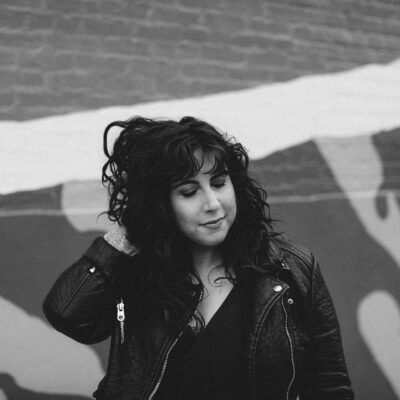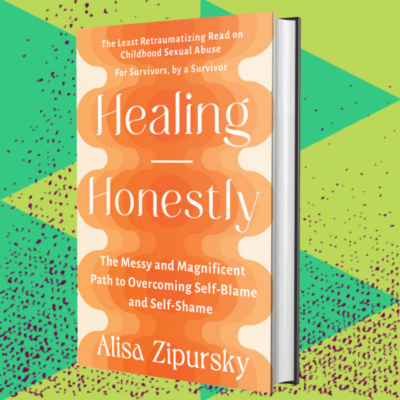This story may contain descriptions of PTSD symptoms, discussion of child sexual abuse, and the effects of trauma.
*cover photo by Mariah Miranda
I get a lot of questions from all you wonderful readers, and, over the years, I’ve noticed consistency within those messages. The vast majority of you tell me about your experiences of having body memories of your trauma without narrative memories, and it’s clear that when I wrote this story nearly two years ago, it was hitting on something that all of us really needed to talk about.
There is one question in particular that often pops up, most recently from a reader a few weeks ago: “Do you ever deal with wavering in your belief about whether you suffered trauma or not?” To put it less gracely, in my own language: Do I still have moments where I doubt my survivorship because I don’t have a clear memory of my childhood sexual abuse? And the answer is yes, I do.
Why talk about moments of doubt and abuse now?
I’ve been meaning to write this for a long time. I even looked back at some notes I wrote eight months ago that said, “Write about what it’s like to be certain and have doubt at the same time.”
But two weeks ago I experienced a really big trigger. The person who abused me, my biological father, tried to turn my support system against me by telling the people I love the most that I am delusional and need help. Classic. CLASSIC. In the words of my bestie and professional anti-violence expert Kate Vander Tuig: “It’s textbook abuser behavior. Yes, ‘textbook’ as in ‘common,’ but also as in it is literally written in every book ever about abusive behavior.”
As much as I wanted to be me, bold, loud and unafraid, I was triggered when the person who abused me crawled out from under his bridge to try to cause more harm. I spent days battling the old voices in my head that say really mean things like, “Maybe I made this all up and I’m crazy.” It’s served as a reminder of how important it is to talk about learning to live with moments of doubt.
I have moments of self-doubt and wavering in my survivorship, and that’s okay
When other survivors ask me if I have moments of doubt, the first response I always have in my head is “ummm…of fucking course” because it’s so difficult for me to imagine a life without these experiences. With all I’ve learned about trauma and the brain, combined with living in a world that tells survivors they are to blame for their own abuse and that their pain doesn’t matter, it seems impossible to not have moments when I waver.
Let me explain what I mean when I say that I waver: There are times when I’m not feeling like the powerful boss woman that I am, but have been triggered and everything is painful, scary, and just overall shitty. In those moments, the old old voices creep into my head and say:
“Well, you aren’t even a real survivor. You don’t remember what happened to you. You are a fraud because you are publicly talking about being a survivor without even remembering it. You could be making all of this up and overreacting to having a really bad father.”
And then, because I’m me, and my therapist says I have the most “impressive” ability to find a way to blame myself for everything, I get deeply disappointed in myself for having these thoughts of doubt. I get caught up in thinking I should be “beyond” having moments of wavering. But that’s not how trauma works.
The moments of doubt are signs of the trauma we’ve endured
I’ve been trying to see my moments of doubt not as ways to diminish my survivorship, but instead as just more evidence of my trauma.
Like so many of you, my experiences with gaslighting go deep. Gaslighting is when someone manipulates you to make you question your own sanity. For me, that has included when the person who abused me denied that he ever harmed me, tried to convince me that my trauma was my own fault and, as recently as two weeks ago, tried to persuade my loved ones that I’m delusional.
In addition to the people who’ve harmed us, we also live in a society that gaslights us. For me, this has included decades of watching survivors publicly tell their stories and then be invalidated when called “crazy” or “liars,” all as a means of silencing us when we speak our truth. This gaslighting can be compounded when we think about the traumas of racism, homophobia and transphobia that so many survivors are experiencing, further working to silence and invalidate survivors when they speak out.
When you think about how much we’ve experienced gaslighting, it seems obvious that we would, of course, have moments of doubt about our survivorship. We live in a world that says that there is a right way to be a survivor, and we are not “it.” And, for many of us, we’ve survived trauma at the hands of people trying to silence and control us by persuading us that we’re crazy.
When this behavior exists within a larger society where most people don’t generally understand the concept of body memory, there’s a lot fueling our moments of doubt. It’s not the easiest thing to explain that our bodies remember, even if our minds don’t (trust me, I do it all the time), despite the fact that neuroscience and psychology are on our side.
Having these moments of doubt feels more like evidence that I’ve been traumatized and abused than any sort of invalidation of my survivorship. Doubting myself, finding ways to blame myself for my abuse, and looking for ways to diminish my pain are all messages stemming from the traumatized part of my brain. If I ever have any confusion about that, I just look the hundreds of letters from all of you describing those same feelings and voices, and it reminds me that we have these common internal voices of doubt because we’ve all been traumatized, not because we are all collectively making it all up.
Coping with the moments of doubt
I’m super happy to report that, over time, the voices of doubt get quieter and show up less frequently. I’ve developed some coping strategies to deal with the voices when they do pop up that I wanted to share with you all.
1. Talk back to the voices of doubt
It’s been really effective for me to interrupt the voices of doubt and just say, “I know this is the traumatized part of my brain trying to blame myself for my pain, now let me be.” Lately, it’s been less eloquent but even more effective to shout at the voices, “SHUT THE FUCK UP!” It’s worked quite well.
2. Visualize the voices
For me, I visualize the moments of doubt as old dusty records playing on a loop. I see myself picking up the tired disc and smashing it on the ground,watching it shatter into hundreds of pieces.
3. Enlist the help of a trusted friend or family member
Just last week, I called Kate and I told her, “Please tell me I’m not crazy, and that this is real and that my trauma isn’t my fault.” And she did, over and over again, and it really helped. It helps to give the people we trust the script that we need them to say.
4. Read more about body memories and trauma in the brain
It can help to read more about how our brains and trauma work and understand that having body memories, and not narrative memories, is a completely normal and common response to trauma. You can always read my article about it and also read Dr. Bessel Van der Kolk’s The Body Keeps the Score.
5. Remember that you are never alone in feeling this way
I’ve been reading and re-reading your letters the past couple weeks, and nothing helps me more. Reminding myself that there are so many other people out there that feel exactly as I do is such a powerful way to feel validated and affirmed when I need it the most. The reason I wanted to write this story is so that when you’re having a difficult time, and your voices of doubt are loud, you can have this same reminder to help you the way that all your letters have helped me.
You can also look at the numbers of just how many of you are also feeling the same way.
A special thank you to all of you
Thank you for your messages, your words, for all of you who said you’ve felt exactly the same way I’ve felt. You’ve given me so much, and I always carry that with me in my heart.
I can’t help that it is triggering to know that the person who abused me is still trying to find ways to harm me. I can’t control the fact that it causes the old voices of doubt to come back to me. Those voices will always be a part of me, in some way, because my trauma will always be a part of me.
Your letters and messages have made me feel affirmed and validated in the moments I’ve needed it the most, and for someone who loves words, I don’t quite have the right ones to express my gratitude.
You all make it so much easier to accept the certainty that there will be moments of wavering, the certainty in my own survivorship, and the certainty that I never want to let those voices of doubt silence me again.
Want me to come speak at your event or facilitate a workshop?
I travel around the country giving talks, facilitate workshops and engaging on panels on the topics of healing from sexual trauma and supporting survivors. I promise, it’s more fun than you’d think. I’d love to speak at your event! Just shoot me an email through my contact page and we can talk about working together.

